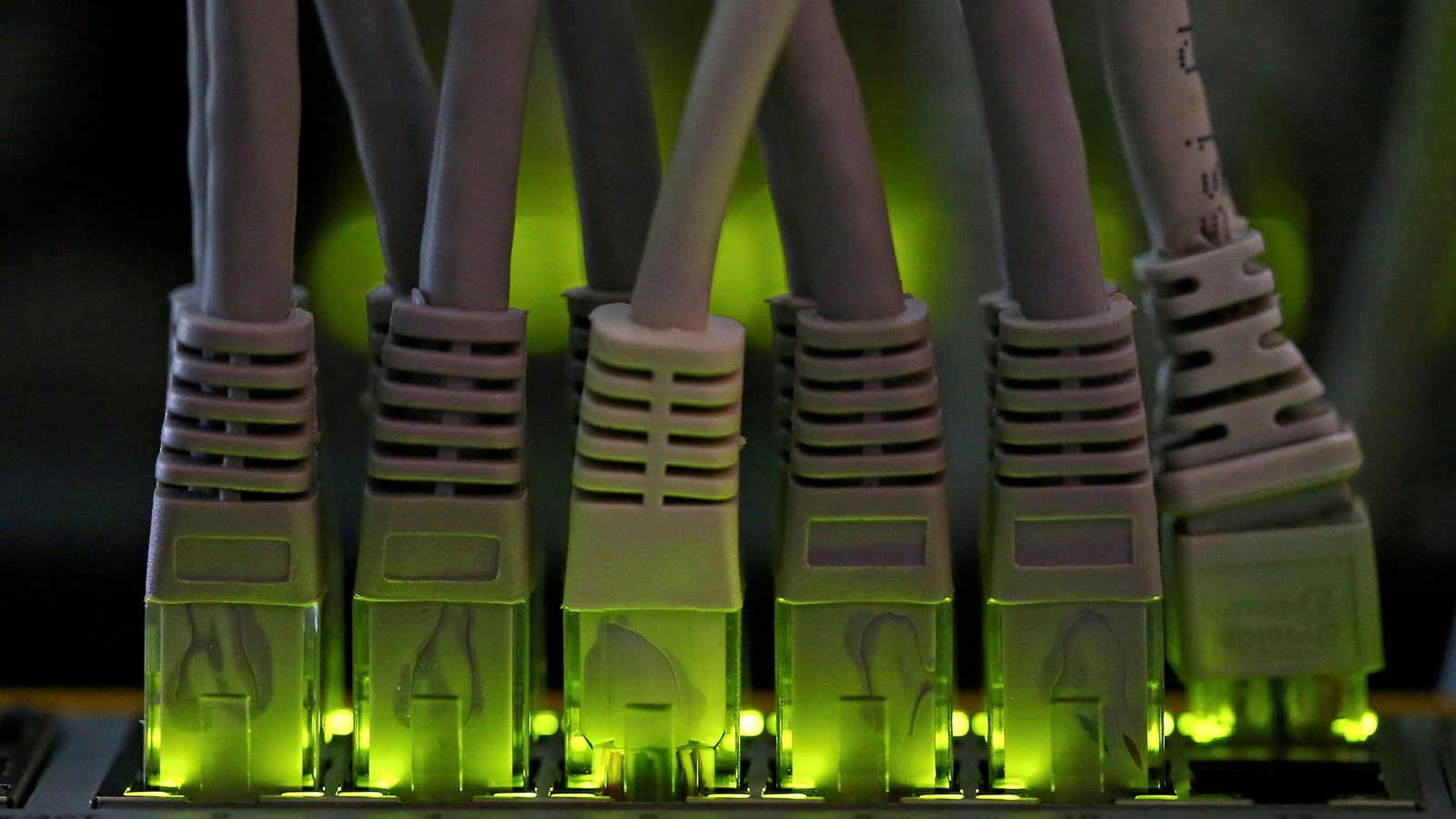Large parts of the Internet collapsed this morning (June 8), when servers belonging to a company named Fastly went down for nearly half an hour. You couldn’t renew a passport on the British government’s website, or consult fellow coders on GitHub, or stream video games on Twitch, or figure out what memestocks to buy on Reddit, or purchase goods on Amazon in certain countries, or indeed figure out what in the world was going on by heading to Quartz. (Or if you had to, the Guardian, the BBC or the New York Times.)
(Twitter remained online, fortunately, offering every frustrated Internet user a chance to explain what they thought was happening.)
What does Fastly do?
Within the plumbing of the Internet, Fastly and other similar companies perform a crucial service. If a web page belonging to, say, Quartz sits on a server in one continent, users accessing it from elsewhere in the world will experience a lag known as latency time. As a result, they may not see the latest version of the page. This is important; a survey once found that 25% of users navigate away from a web page if it takes longer than four seconds to load.
Fastly deploys what it calls “points of presence” (POPs) or “edge servers”: servers distributed around the world, to constantly cache web pages of its client companies. Then, when users summon a web page, Fastly serves it up from the cached location closest to them. A request from San Francisco to load an image on a server in London will take 300 milliseconds to fulfill. Rerouted to a cache on Fastly’s edge server in San Jose, the same request will take just 10 milliseconds.
There aren’t many companies that do this kind of work, in part because the infrastructure is expensive to build. Economies of scale also favor firms that are already in the business, so that their edge servers and data centers are prepared to take on the web pages of additional clients. As a result, many of the Internet’s most trafficked web pages are served out of caches built by just a handful of companies: Fastly, Cloudflare, Akamai, and Amazon’s CloudFront.
Protection through decentralization
In pandemic-hit, work-from-home 2020, Fastly and its peers—in what is known as the content delivery network space—had a boom year. Fastly’s shares shot up 373% in the year, just behind the 380% rise enjoyed by Cloudflare. In the third quarter of 2020, Fastly’s revenue grew 62%.
Fastly’s servers are distributed all around the world, from the southern tip of Africa to the eastern coast of Australia to the three Nordic capitals. In normal times, this decentralization is a good thing: a way to build redundancy into the network, so that if one server fails, another can step in. In a tweet, Fastly said a “service configuration…triggered disruptions across our POPs globally.” When Fastly disabled that configuration, edge servers began functioning again, and the internet sprang back to life.
